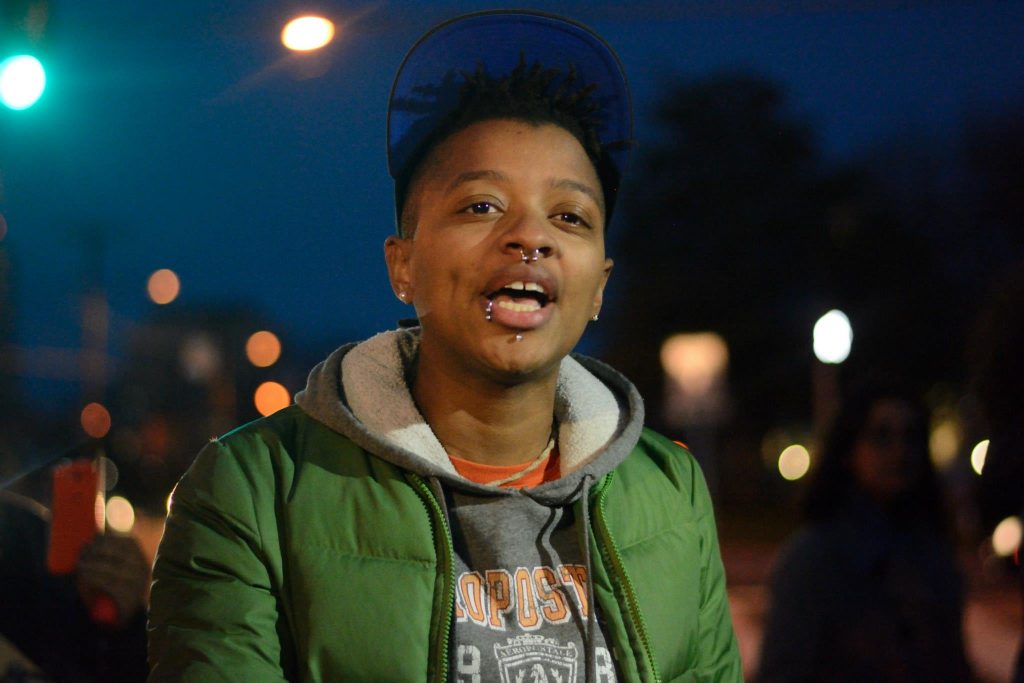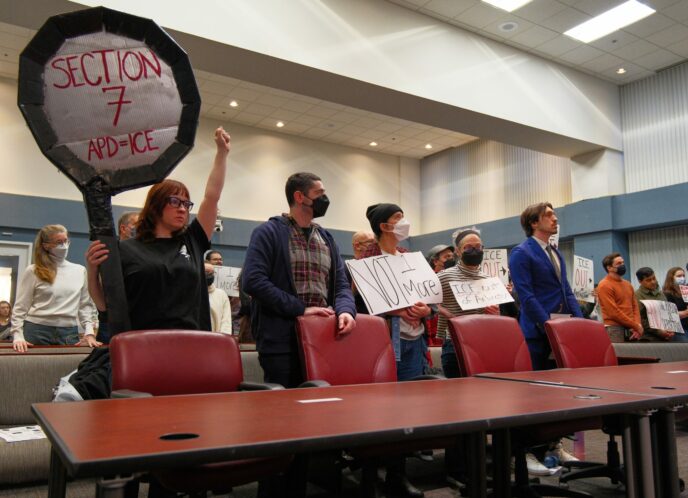In this guest blog, 2019 Color of Surveillance delegate Laila Nur explores how the surveillance of working class Black communities has impacted their life.
The FBI’s counterterrorism unit called us “Black Identity Extremists.” I knew it was for me.
By October 2017, I had come to love my Black self. After a lifetime of white superheroes and police beatings on Black bodies, I had managed to love my Black self and loving my Black self, to me meant fighting for Black lives and that made a lot of people– a lot of watching and fearful people– very uncomfortable.

I learned very young that I am scary and should therefore be scared of those watching eyes. Because I was Black or poor or muslim or women or queer, all of it made them very uncomfortable. After managing to love my Black self and fight for Black lives in Durham, the watching intensified. I was a problem for fighting back. The only thing they hated more than working class people of color was organized working class people of color. And in the age of Facebook, facial recognition, heightened police surveillance and the robotization* of working class jobs, organizing has become increasingly difficult.
Workers are more fearful of being organized because they are being watched, counted and surveilled at every waking moment. Police show up to protests with cameras rolling, scanning faces into a database to build a profile on every disgruntled worker and “Black Identity Extremist” they see. It’s used to intimidate those who would dare dissent, those who dare protest for higher wages or against sexual harassment on the job or the killings of unarmed people of color. How dare you.
Although a lot of this technology is new, the surveillance of working class Black people and other people of color is not. Clocking our every move on the job isn’t new; reducing any opportunities to organize for unions or better working conditions isn’t new; justifying their poor treatment by creating false dominant narratives and labels (like Black Identity Extremist, welfare queen, super predators, illegal aliens or thug) isn’t new. It embeds a form of surveillance that we internalize, forcing us to watch and police ourselves. We become the watcher, questioning any push for power, instead of being instigators for change.
Challenging the surveillance of the working class means daring to organize. Challenging the surveillance of Black and brown people of color means daring to be seen, heard and dissent. For me, as an organizer that is new to the digital space, it means looking for every opportunity to break the legs under every false narrative and instead, bridge us together; it means fighting back against invasive technology while using the digital realm to build power.
*Black Identity Extremist: a term used by the FBI to describe black lives matter protesters in a leaked document obtained by Foreign Policy in October 2017. Learn more.
*Robotization: automation or the process of turning a human into a robot.
Laila Nur
Laila Nur (she/her, he/him) works for Coworker.org as a campaigns strategist, supporting and strategizing with workers across industries to make meaningful changes in the workplace. Laila comes to Coworker with almost a decade of organizing and campaign experience, having served as the NC Lead Organizer for the National Domestic Workers Alliance, board member and organizer for North Carolina IPO, Durham For All and previously organized with SEIU’s Fight For $15 campaign.



